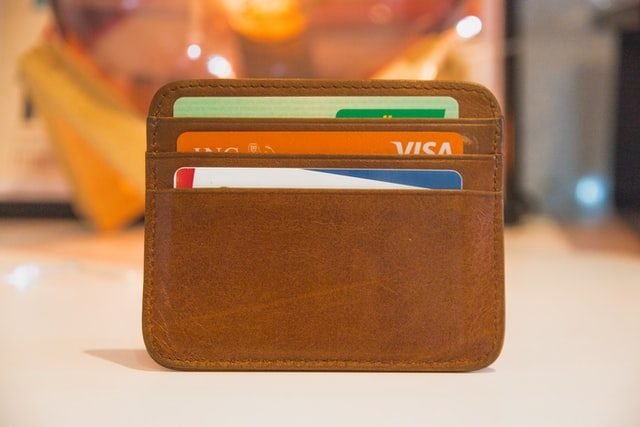In the world of business, taking a loan goes hand-in-hand with having collateral. That’s an asset of value to secure the funds. Lending and borrowing funds are risky. The loan provider is focused on ensuring the balance is repaid, and the business leader hopes to generate revenue.
The reason for collateral is to provide a way for lenders to recover their funds if a default occurs. The problem for some small business leaders is they don’t have adequate assets to offer as security or prefer not to put it on the line.
Fortunately, options are available for a lån til bedrift uten sikkerhet (a loan for business without security or collateral). However, they’re not entirely without protection and have a somewhat higher price point.
Borrowers are more than willing to abide by these conditions if it means avoiding standard collateral requirements.
The priority is researching a loan that optimizes your specific needs. That will mean understanding unsecured or no-collateral business loans; and what you must do as a business leader to obtain one. Let’s learn.
What Are The Basics To Obtaining An Unsecured Or No-Collateral Business Loan
When looking for a business loan, particularly an unsecured or no-collateral loan; research is essential to learn what’s involved in these products.
Secured lending
As a rule, with business loans, a priority is securing the funds with a valuable asset referred to as collateral. Lenders can seize this property if there’s a default. When taking a home loan, the house serves as the asset, and the car is collateral for an auto loan.
For a secured business loan, lenders usually accept the property, buildings, maybe machinery, or inventory as assets. The secured loans have these safeguards in place to avoid suffering a loss if the business can’t repay the borrowed money.
Unsecured lending
An unsecured or no-collateral loan doesn’t require security or a valuable asset to safeguard the funds. While it might seem as though you’ll get a loan without any repercussions if you stop repaying; that’s not entirely the case.
Unsecured business loans are usually secured in a different way using a “blanket UCC lien” or a personal guarantee.
A personal guarantee is your promise that if your business stops repaying the installments, you become personally responsible for the loan. That puts your personal property like a car or other assets at risk if you don’t repay.
A blanket UCC lien stipulates that the lender is permitted to seize any business assets if the company defaults on its loan in order to recover the loss.
Regardless of whether you opt for secured or unsecured lending; there are securities in place with both platforms to safeguard the lender in case of a default with the business loan. Read here how to get a business loan without collateral.
Is An Unsecured Loan Right For You
If the premise behind getting a business loan without security or collateral is to try to prevent the loss of assets if you default; you should reconsider taking a loan until you’re comfortable with making the repayments. Becoming involved with a loan you’re unsure you can fully repay is unwise.
However, if you don’t have adequate assets or don’t want to use these against a loan; the options are available to avoid having to do so.
With these alternative options, you will pay a higher interest, and the term will be shorter; but you’ll be able to find one that will meet your needs using either a personal guarantee or a blanket UCC lien. Those stipulations will keep you financially responsible for repaying on time and consistently.
What Steps Should You Take As You Build Your Business
If you get unsecured loan approval, a priority is staying regular and prompt with your repayments in an effort to establish and build the company’s credit plus building the business. Your commercial credit is separate and apart from your personal credit, although both of these should remain in stellar condition.
The greater the business grows from its startup position, the more assets you accumulate; and these can secure funding for future business lending. That will open your company up to more products with better rates, terms, and conditions.
Plus, lenders will see your history of repaying the unsecured debt promptly and consistently, proving you to be less risky. What type of unsecured product will most be conducive to your objectives as a newly growing business? Consider some of these options.
SBA lending
The government backs SBA lending, referred to as US Small Business Administration loans. The SBA isn’t responsible for loaning funds, but it partners with approved lenders to provide eligible business leaders with better lending options at lower rates.
This administration usually mandates collateral as a condition for the lower rates; but they will accept a personal guarantee when using the “SBA 7a program.”
The administration will determine if a business is eligible for a loan from any lending agencies, with creditworthiness being a leading factor in approval, particularly whether other loan providers have rejected your application for a loan.
A business line of credit
A business line of credit is a type of loan where you don’t receive the loan amount in a lump sum upfront. The lending agency provides a borrowing amount that you can access whenever there’s a need for funds. When the money is repaid, interest is only charged on the borrowed funds.
The borrowed money can be used for many business purposes, whether you need to buy equipment for operations, cover staff salaries, and more.
The entities that tend to offer lines of credit almost always require collateral, meaning you’ll be somewhat restricted when shopping for an option with the most reasonable rates, not using collateral. There are legitimate and reputable providers, but researching takes time and forethought.
The merchant cash advances
Merchant cash advances, or MCAs, will prove to be among the most costly lending products when considering interest rates. Still, these are one type of product that is distinctly unsecured with no collateral and no blanket UCC lien or personal guarantee required from the business leader.
How is this possible? MCAs work with you, receiving a portion of the funds in a lump sum upfront, but the loan provider will then assume a part of your day-to-day sales until the loan’s balance has been repaid.
You’re not technically securing the funds with a valuable asset, but you are sacrificing a considerable amount of pending cash flow based on the loan balance. These can be risky endeavors, but they can also be an incredible option for those who need cash quickly.
Some vendors not only waive personal guarantees but also don’t require credit checks with this lending option. Find out how to get a business loan without a personal guarantee at https://www.businessnewsdaily.com/16467-personal-guarantee.html.
The choice of equity finance
This option is not for many starting entrepreneurs struggling to get their startups off the ground. It’s their goal to keep the business sort of “in-house,” so to speak. With equity finance, the premise is for an investor to offer the funding that you need to progress your operations.
In return for the money they give you, the investor is given either part ownership or a share in the company. If you don’t want anyone having a vested interest in our business, this isn’t a good financing option for you.
If you don’t mind a partnership, particularly since you don’t need to repay the funds, or if there are specific people who would make a good match with your business as an investor and part owner, it could be an ideal way to fund the business.
Final Thought
After you choose a financing option and a lending agency, you’ll need to ensure you qualify for the product. Online alternative loan programs offer fast application processes and approval times compared to conventional lending. The approval can be as quickly as the same day.
The documentation and paperwork will need to be thoroughly completed. The loan provider will also want to see optimum credit credentials and adequate business potential, including proof of growth in the time it’s been operational.
Fortunately, a broad range of unsecured products assists business leaders in funding their startups or small companies through their awkward beginning stages. It’s important to remember that no-collateral loans don’t mean you have no responsibility. There are safeguards in place if even alternative loans default.
These personal guarantees or blanket UCC liens ensure lending agencies have recourse if you stop making the repayments as the business leader. If there’s a default, you will take the business debt as a personal responsibility, or the lender will seize the company assets to recover their loss.
Lenders prefer business loans as a secured loan product to safeguard their risk. In a roundabout way, even the lending agencies offering no-collateral products are protected with common contingencies in place. As a business leader, taking a loan is beneficial only if you know you can repay the funds in full.




